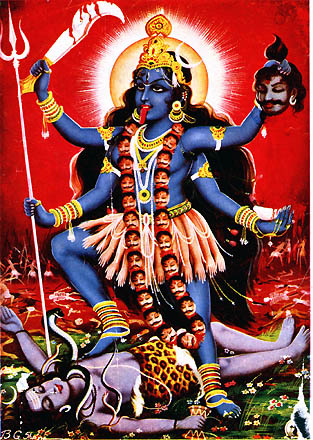KalhanKaliabor
Kali (English) [ IPA: kali ASM: কালী]
Contributed by: Anjal Borah (অঞ্জল বৰা) on 2009-05-27
 English: Kali, Kalika,
English: Kali, Kalika,
Assamese: কংকালমালিনী, কপালমালিনী, কপালিনী, কালিকা, কালী, কৰালবদনা, কৰালী, চণ্ডমুণ্ডা, চণ্ডিকা, দিগ্বসনা, নৃমুণ্ডমালিনী, মুণ্ডমালিনী, শ্যামা,
Dimasa: kali, ronasondi,
Bangla: কালি, কালিকা
kali (Garo)
Contributed by: Mousumi Konwar on 2023-08-13
kali (Nagamese)
Contributed by: Temsunungsang T on 2008-04-02
English: yesterday,
Assamese: কালি, যোৱাকালি,
Bodo: मैया,
Mising: melo,
Garo: mijal,
Mizo (Lushai): nimin,
Karbi: atumi, timi,
Kok-Borok: mia, miya,
Nagamese: jua-kali, kali, zuakali,
Dimasa: miyaha,
Apatani: biilyo,
Nepali: हिजो,
Rabha: মিয়া,
Tiwa: khona`,
Deori: মিয়া, মিয়া-কাৰি
Contributed by: Temsunungsang T on 2008-04-02
English: tomorrow,
Assamese: অহাকালি, কাইলৈ, কালিলৈ,
Bodo: गाबोन, समफोर,
Mising: yampo,
Meeteilon: hayeng,
Karbi: menap, penap, ponap,
Kok-Borok: khwna,
Nagamese: aha kali, kali, oha-kali,
Dimasa: dakhna,
Apatani: konda,
Ao: Asüng,
Tai: মোও ফুক,
Hindi: कल,
Nepali: भोलि,
Rabha: গানাপ, গাফুং,
Tiwa: khona’na,
Deori: দিচইন, দিপুৰ
kali (Dimasa)
Contributed by: Kulendra Daulagupu on 2009-08-13
 English: Kali, Kalika,
English: Kali, Kalika,
Assamese: কংকালমালিনী, কপালমালিনী, কপালিনী, কালিকা, কালী, কৰালবদনা, কৰালী, চণ্ডমুণ্ডা, চণ্ডিকা, দিগ্বসনা, নৃমুণ্ডমালিনী, মুণ্ডমালিনী, শ্যামা,
Dimasa: kali, ronasondi,
Bangla: কালি, কালিকা
Kali (English) [ IPA: kali ASM: কালী]
Contributed by: Anjal Borah (অঞ্জল বৰা) on 2009-05-27
1. Religious-Mythological(Proper Noun-Feminine) Kali is a Hindu goddess associated with death and destruction. In Kali's most famous myth, Durga and her assistants, Matrikas, wound the demon Raktabija, in various ways and with a variety of weapons, in an attempt to destroy him. They soon find that they have worsened the situation, as for every drop of blood that is spilt from Raktabija the demon reproduces a clone of himself. The battlefield becomes increasingly filled with his duplicates.Durga, in dire need of help, summons Kali to combat the demons. It is also said that Goddess Durga takes the form of Goddess Kali at this time. Kali destroys Raktabija by sucking the blood from his body and putting the many Raktabija duplicates in her gaping mouth. Pleased with her victory, Kali then dances on the field of battle, stepping on the corpses of the slain. Her consort Shiva lies among the dead beneath her feet, a representation of Kali commonly seen in her iconography as Daksinakali' শিৱৰ ভাৰ্যা, দুৰ্গাৰ এক মূৰ্তি৷ এই মূৰ্তি ক’লা, চতুৰ্ভুজ উলংগ আৰু সদাশিৱৰ বুকুত থিয় হৈ থাকে৷ ৰক্তবীজ নামৰ অসুৰক বধ কৰিবৰ কাৰণে দুৰ্গাই সেই ৰূপ ধাৰণ কৰাত তেওঁৰ খোজত পৃথিৱী বহি যোৱা দেখি মহাদেৱে তেওঁক বুকু পাতি ধৰে৷

Assamese: কংকালমালিনী, কপালমালিনী, কপালিনী, কালিকা, কালী, কৰালবদনা, কৰালী, চণ্ডমুণ্ডা, চণ্ডিকা, দিগ্বসনা, নৃমুণ্ডমালিনী, মুণ্ডমালিনী, শ্যামা,
Dimasa: kali, ronasondi,
Bangla: কালি, কালিকা
kali (Garo)
Contributed by: Mousumi Konwar on 2023-08-13
2. (Material Noun-Neuter) A coloured liquid used for writing or drawing. লিখিবলৈ বা ছবি আকিবলৈ ব্যৱহাৰ কৰা ৰঙীন জুলীয়া দ্ৰব্য ।
kali (Nagamese)
Contributed by: Temsunungsang T on 2008-04-02
3. (Abstract Noun) the day previous to the present day or today আজিৰ আগৰ বিগত দিনটো৷
Assamese: কালি, যোৱাকালি,
Bodo: मैया,
Mising: melo,
Garo: mijal,
Mizo (Lushai): nimin,
Karbi: atumi, timi,
Kok-Borok: mia, miya,
Nagamese: jua-kali, kali, zuakali,
Dimasa: miyaha,
Apatani: biilyo,
Nepali: हिजो,
Rabha: মিয়া,
Tiwa: khona`,
Deori: মিয়া, মিয়া-কাৰি
Antonyms:
a. Abstract Noun: tomorrow, অহাকালি, কাইলৈ, কালিলৈ, गाबोन...Contributed by: Temsunungsang T on 2008-04-02
4. (Abstract Noun) the day following the present day or today আজিৰ পিছত আহিব ল’গা দিনটো৷
Assamese: অহাকালি, কাইলৈ, কালিলৈ,
Bodo: गाबोन, समफोर,
Mising: yampo,
Meeteilon: hayeng,
Karbi: menap, penap, ponap,
Kok-Borok: khwna,
Nagamese: aha kali, kali, oha-kali,
Dimasa: dakhna,
Apatani: konda,
Ao: Asüng,
Tai: মোও ফুক,
Hindi: कल,
Nepali: भोलि,
Rabha: গানাপ, গাফুং,
Tiwa: khona’na,
Deori: দিচইন, দিপুৰ
Antonyms:
a. Abstract Noun: yesterday, কালি, যোৱাকালি, मैया, melo...kali (Dimasa)
Contributed by: Kulendra Daulagupu on 2009-08-13
5. Religious-Mythological(Proper Noun-Feminine) Kali is a Hindu goddess associated with death and destruction. In Kali's most famous myth, Durga and her assistants, Matrikas, wound the demon Raktabija, in various ways and with a variety of weapons, in an attempt to destroy him. They soon find that they have worsened the situation, as for every drop of blood that is spilt from Raktabija the demon reproduces a clone of himself. The battlefield becomes increasingly filled with his duplicates.Durga, in dire need of help, summons Kali to combat the demons. It is also said that Goddess Durga takes the form of Goddess Kali at this time. Kali destroys Raktabija by sucking the blood from his body and putting the many Raktabija duplicates in her gaping mouth. Pleased with her victory, Kali then dances on the field of battle, stepping on the corpses of the slain. Her consort Shiva lies among the dead beneath her feet, a representation of Kali commonly seen in her iconography as Daksinakali' শিৱৰ ভাৰ্যা, দুৰ্গাৰ এক মূৰ্তি৷ এই মূৰ্তি ক’লা, চতুৰ্ভুজ উলংগ আৰু সদাশিৱৰ বুকুত থিয় হৈ থাকে৷ ৰক্তবীজ নামৰ অসুৰক বধ কৰিবৰ কাৰণে দুৰ্গাই সেই ৰূপ ধাৰণ কৰাত তেওঁৰ খোজত পৃথিৱী বহি যোৱা দেখি মহাদেৱে তেওঁক বুকু পাতি ধৰে৷

Assamese: কংকালমালিনী, কপালমালিনী, কপালিনী, কালিকা, কালী, কৰালবদনা, কৰালী, চণ্ডমুণ্ডা, চণ্ডিকা, দিগ্বসনা, নৃমুণ্ডমালিনী, মুণ্ডমালিনী, শ্যামা,
Dimasa: kali, ronasondi,
Bangla: কালি, কালিকা
